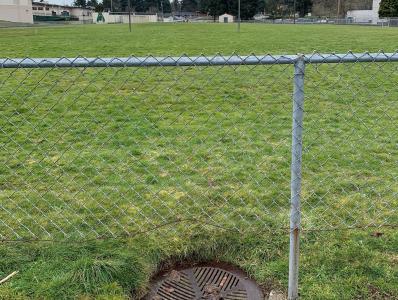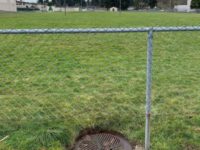The artificial turf field and stormwater system were designed to current King County surface water design standards. As part of the design, Farallon used the Western Washington Hydrology Model to determine the appropriate size of a sand filter for water quality treatment.
The conversion of the athletic field from existing natural grass to synthetic turf will allow for year-round use of the facilities, even in inclement weather conditions. The conversion also will reduce maintenance and irrigation costs. Other improvements include reconstruction of the field event areas within the existing track, including areas for long jump, high jump, and pole vault events. The field gravel sub-base and sand filter reduce the amount of total suspended solids in stormwater runoff. High concentrations of total suspended solids negatively impact ecosystems by causing increased sedimentation of lakes and streams, which harms habitat areas for fish and other aquatic species. The new synthetic turf will provide football field users with a superior playing surface for many years to come.
“The field conversion design achieved the client's goal of reducing maintenance costs, improving field conditions and stormwater drainage, and providing a surface that can be used year-round,” said Principal Engineer Chris Kovac, who managed the project.

